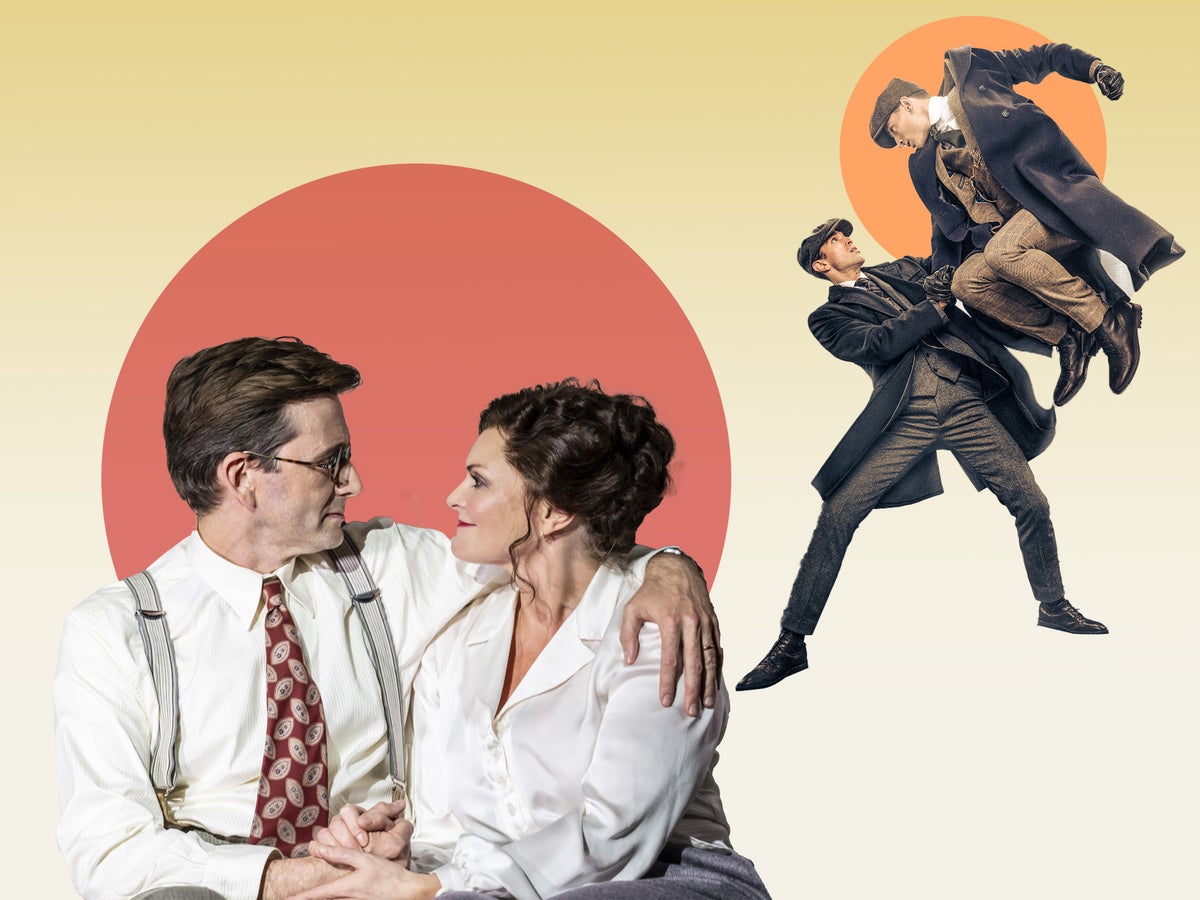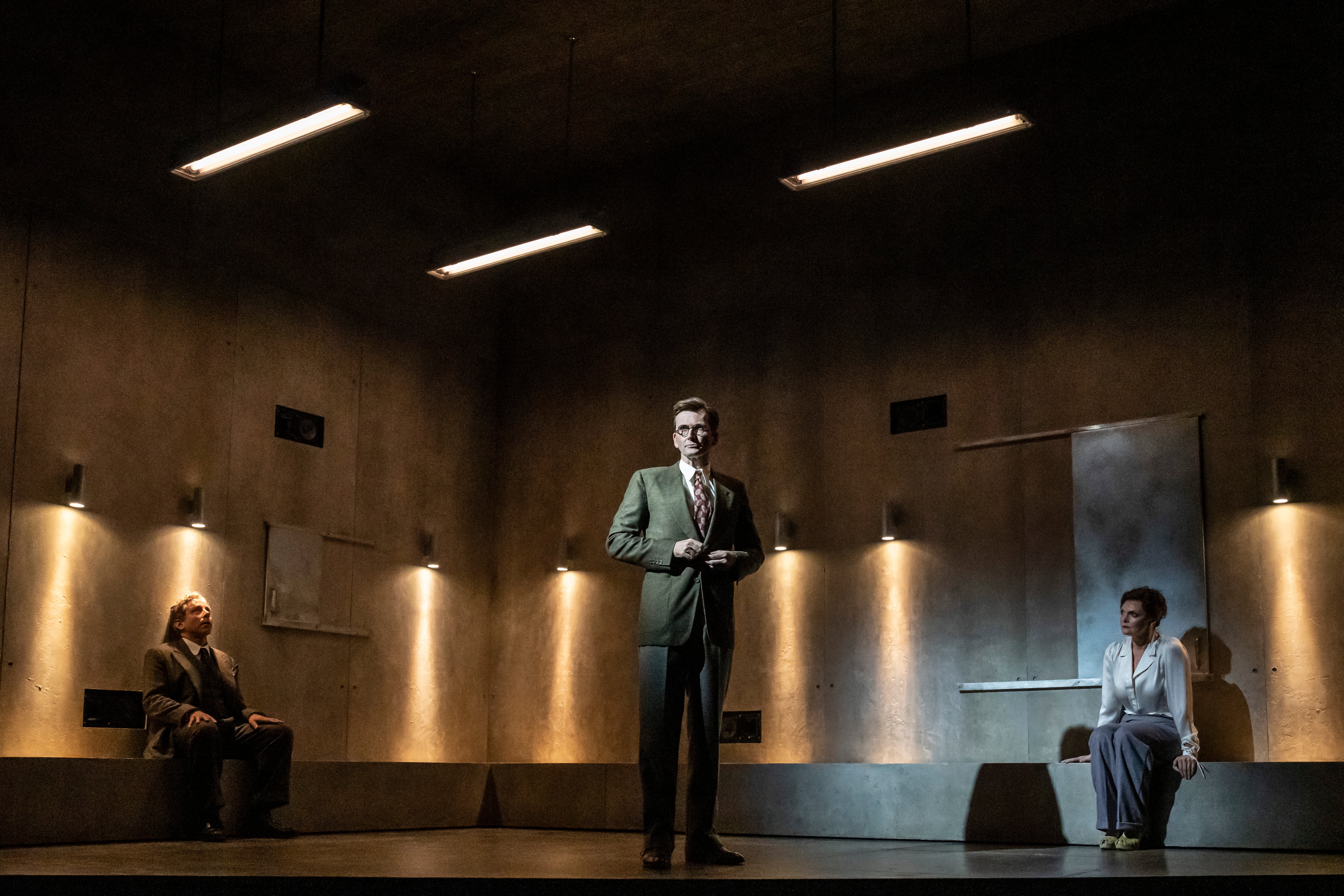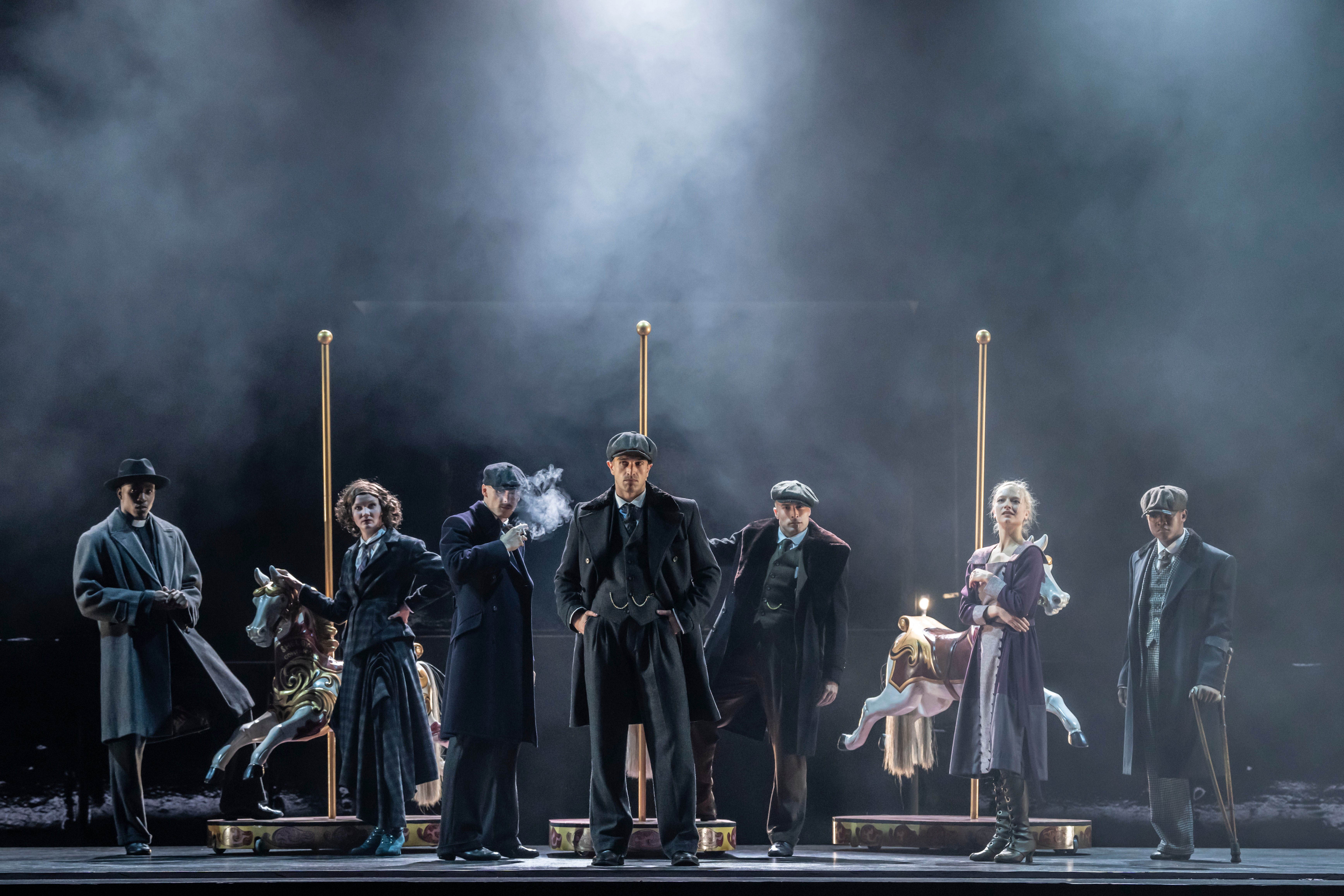
It’s been a week of intriguing new shows, with theatre mixing with other art forms via a Peaky Blinders dance show and an opera based on the life of Kurt Cobain. Plus, there was a major return to the West End for Doctor Who star David Tennant.
Join us next week when we’ll be reviewing the RSC’s production of Studio Ghibli hit My Neighbour Totoro and the new Royal Ballet show from Crystal Pite.
Good – Harold Pinter Theatre ★★★☆☆
“We are good people,” says Anne, John Halder’s lover in Good. But can they be? The playwright Alan Plater described CP Taylor’s 1982 play as “the definitive piece about the Holocaust in the English language”. It tracks how Halder – a liberal and decent professor from Frankfurt – falls into arguing in favour of the Final Solution. In the lead role, David Tennant is stonily cold and compassionless in his sink from goodness, but Dominic Cooke’s confused production needs more clarity for it to fly.

Cooke has made the unsatisfying decision to shrink the usual cast of 10 down to three. The supporting actors, Sharon Small and Elliot Levey, have the mammoth burden of playing all the other parts – which, despite their enthusiasm, come off at varying levels of success. The text is baffling in form, with scenes that don’t always follow a linear narrative order, while the character’s lack of definite identity prevents the production from ever feeling truly disturbing.
Still, as Halder, Tennant is terrifically hypnotic. Stiff and empty, he keeps us at arm’s length as he swaps between his internal monologue and public face. He seems physically anchored to the stage as the wickedness buried inside of him wades out slowly. Tennant is an actor unafraid to take his time and it is a meticulous performance; each move has purpose, every jerk has considered aim.
The play’s conclusion is not a totally shocking one, but it does have power. Good is an alarming lesson on the dangers of narcissism and passivity that demands we think of more than just ourselves. Anya Ryan
Peaky Blinders: The Redemption of Tommy Shelby – Troubador Wembley Park Theatre ★★★★☆
With a swagger, Steven Knight’s Peaky Blinders has gone from an award-winning television series to an ever-expanding brand. There are plans for a film and a spin-off series, a festival, clothing brands and more. Now Rambert Dance translate the 1920s Birmingham gangsters into movement, mixing rock gig energy with urgent physical power.
Choreographed by Rambert’s director Benoit Swan Pouffer and created in collaboration with Knight, the new show is a stylised dance drama. Taking a free hand with the series, it focuses on the love story between Thomas Shelby and Grace Burgess. There are snatches of narration from Benjamin Zephaniah, but the story is told in dance, and through its fierce, stylish production.

Naya Lovell’s Grace carries herself with magnetic poise, pulling every scene into focus, while Guillaume Quéau’s Thomas Shelby is a bold mover, with a sense of physical threat. Musa Motha, who is an amputee, plays Barney with stark conviction. Working with crutches, Motha and Pouffer weave distinctive silhouettes into vivid storytelling.
Throughout, there’s a sense of Rambert positioning itself for a new audience, trying to find a new way to connect. The company’s fine dancers give it total conviction, whether plunging into brawl scenes, spilling offstage into the auditorium, or swooping into period style. It’s a smart, confident show. Zoe Anderson
Last Days – Linbury Theatre ★★★★★
In 2005, the filmmaker Gus Van Sant – best known for his hauntingly beautiful My Own Private Idaho – made a fictionalised arthouse movie titled Last Days. It chronicled Kurt Cobain’s final disappearance: 100 minutes in which nothing happens, beyond muttering and grunts from the protagonist as he stumbles about in his domain. Boring? You can say that again. But weirdly, some people love that movie, and one of those people is the French star Agathe Rousselle, who claims to have seen it 15 times.

Enter composer Oliver Leith, director Matt Copson, and choreographer Anna Morrissey, who have turned Van Sant’s film into an opera with Rousselle in the leading (non-singing) role. When they asked Van Sant for a copy of his script, his reply was simply: “Do your own thing” – and they’ve done that. So, here we are, in a beautiful little wooden theatre in the bowels of the Royal Opera House, watching the fruits of a collaboration between the ROH and the Guildhall School of Music and Drama.
The surprise is that this show avoids all the clichés one might have predicted. Nobody tries to reproduce Cobain’s voice (Rousselle limits herself to a single snarl of rage), and none of his trademark songs are trotted out. There is a shotgun, but it hangs on the wall and is not fired. What this talented team have created is extraordinary, something visually and vocally closer to the Japanese aesthetic than to anything Western, while the closing scenes suggest a Bach chorale put tenderly through a screen of ecstatic atonality. It will be fascinating to see what these people do next. Michael Church







